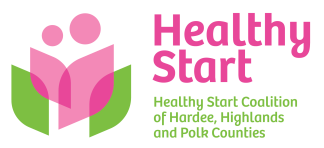Postpartum Self-Care: The postpartum period has many physical, psychological, and emotional changes. One term that captures this experience is “matrescence.” It describes the physical, social, hormonal, and identity changes of becoming a mother. Matrescence is a unique life stage that involves significant physical, emotional, and identity shifts, much like adolescence. Motherhood changes the body, mind, heart, and sense of self. This transformative period requires time and adjustment as individuals grow into new roles and responsibilities.
The postpartum period is a time of significant change and personal growth but can also bring emotional challenges. New mothers commonly experience various feelings, from joy and excitement to stress and uncertainty. For some, these emotions can lead to postpartum mood and anxiety disorders (PMADs), which include conditions like postpartum depression and anxiety. Studies show that about 15 to 20% of women experience depression or anxiety during pregnancy or after giving birth. Recognizing these feelings and understanding that they are expected can be the first step in seeking support and managing mental health during this critical life transition.
Postpartum Self-Care
However, by staying informed and taking some simple steps, you can reduce the risk of PMADs and support your well-being during this transition. Here are some practical ways to care for yourself during this time:
- Build a Strong Support System: Help from friends, family, or a support group is crucial in the newborn stage. This could mean asking someone to hold your baby while you shower, get groceries, or have a friend to talk with. Don’t hesitate to ask for help—you deserve it.
- Prioritize Self-Care: Remember, self-care is not a luxury, it’s a necessity. Make time for activities that bring you joy, like reading a book, taking a warm bath, or walking. Listen to your body and take breaks when needed; this helps you recharge and be there for your baby. You are important, and your well-being matters.
- Share Your Feelings: Talking about your emotions with someone you trust, whether your partner, friends, or a professional, can help relieve stress. It is important not to bottle up your feelings.
- Maintain a Healthy Lifestyle: Eat nutritious meals and gentle physical activities to support your mood and energy. Even small stretches can make a difference. Make sure to nourish yourself, as it will help you feel more robust and balanced.
- Get Enough Sleep: Lack of sleep can worsen mood issues, so try to rest whenever possible. Take short naps during the day and ask for help getting enough sleep. This will help you cope better with the demands of caring for a newborn.
- Seek Professional Help When Needed: If you are feeling overwhelmed by sadness, anxiety, or intrusive thoughts, reach out to a mental health professional. Trained specialists can offer guidance and support during this time.
- Join a Support Group: Remember, you are not alone in this journey. Support groups can provide a safe space to share experiences and get advice from others in a similar situation. Many groups are available online or through recommendations from healthcare providers. Connecting with others who understand what you’re going through can be a source of comfort and strength.
- Manage Expectations: It’s okay to feel a mix of emotions during the postpartum period. Remember that postpartum is an adjustment, and feeling mixed emotions is okay. Be patient with yourself and accept that not every moment will be perfect. Bonding with your baby takes time, and every journey is unique. You are not alone in feeling this way, and it’s all part of the process.
- Practice Mindfulness and Relaxation: Mindfulness exercises and deep breathing techniques can reduce stress. Apps like Calm or YouTube videos can help you incorporate relaxation into your daily routine.
- Connect with Your Baby: Spend time cuddling, talking to, and playing with your baby. These small moments help build a bond that will grow over time.
- Monitor Your Physical Health: Talk to your healthcare provider if you experience ongoing physical pain or discomfort. Taking care of your body is vital to feeling well emotionally, too.
- Stay Informed: Learning about postpartum mood and anxiety issues can help you feel prepared. The more you know, the better you can recognize signs early and find the right resources.
The postpartum period is a time of profound transformation. By seeking support, practicing self-care, and staying mindful, you can support your well-being and your baby’s. Remember, you are not alone, and help is always available. Embrace this journey with patience, confidence, and kindness toward yourself.

